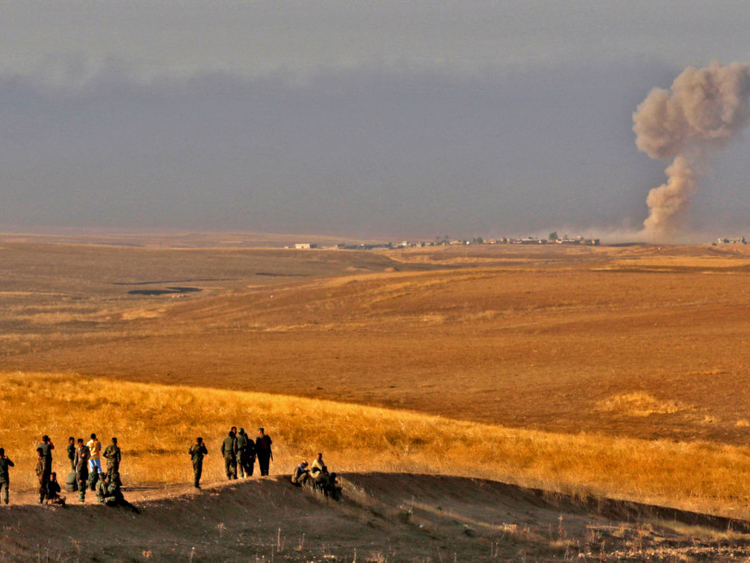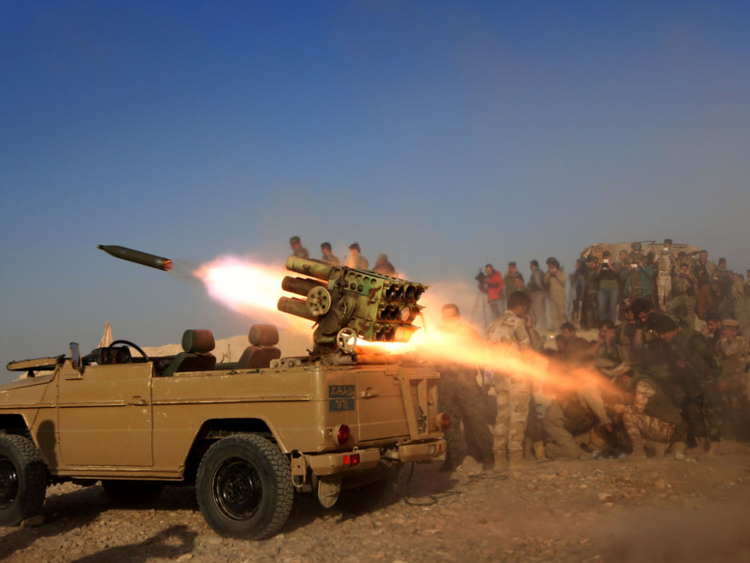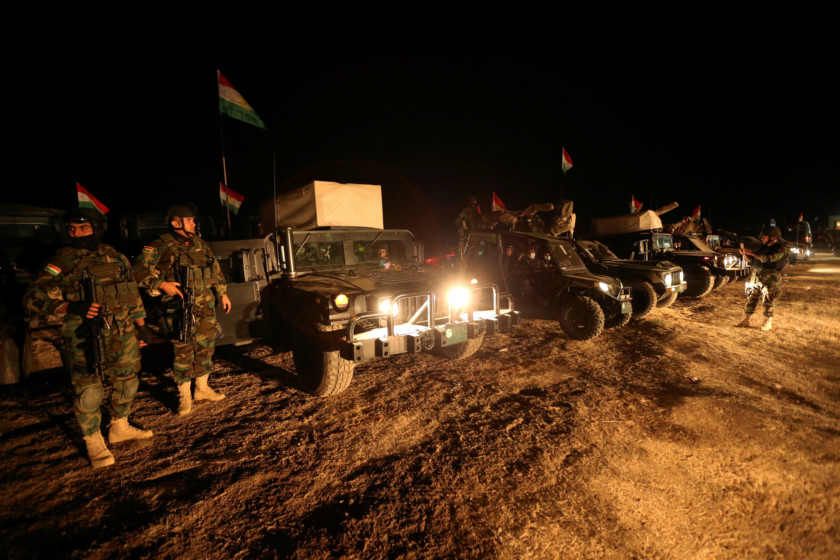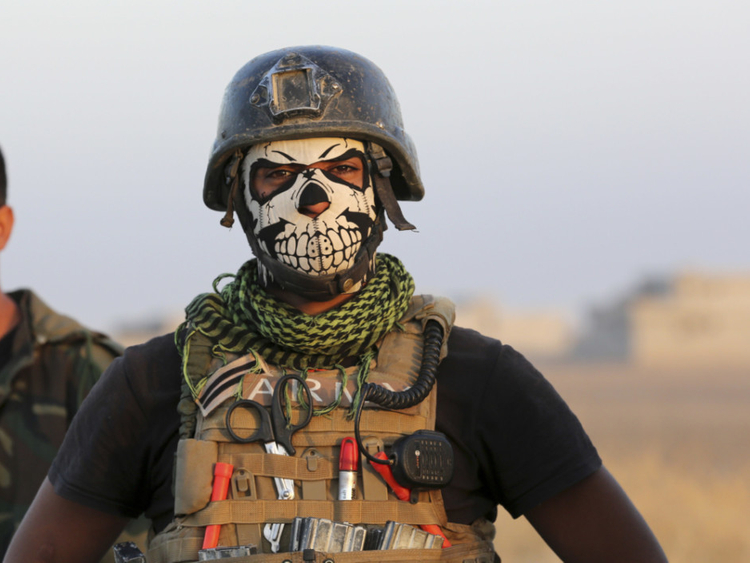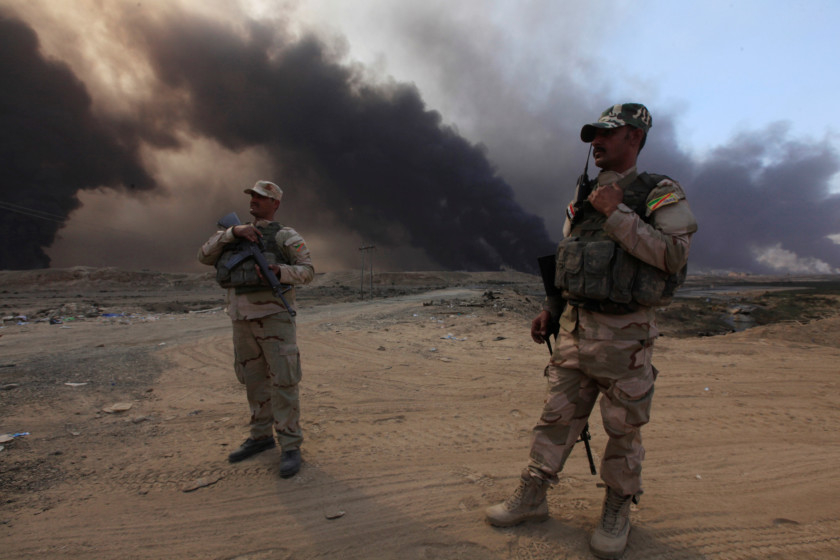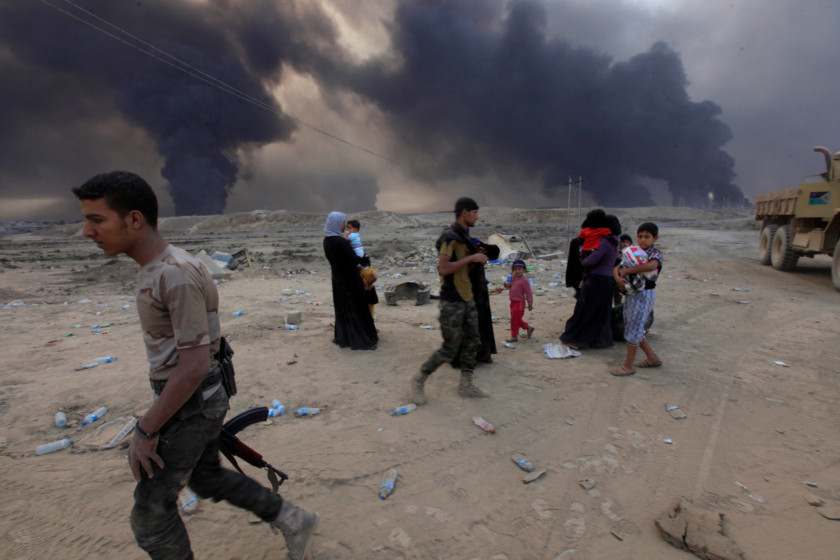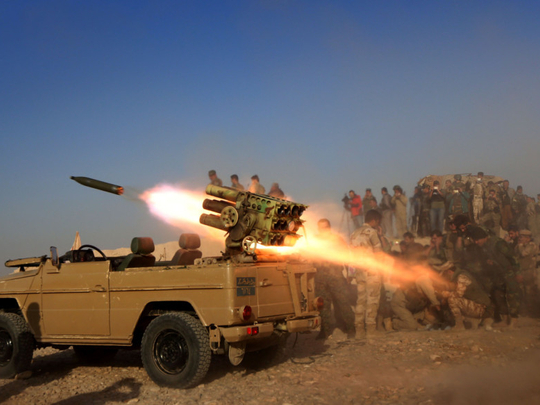
Dubai: The offensive to seize back Mosul from Daesh is going faster than planned, Iraq’s prime minister said on Thursday, as Iraqi and Kurdish forces launched a new military operation to clear villages around the city.
“The forces are pushing towards the town more quickly than we thought and more quickly than we had programmed,” Prime Minister Haider Al Abadi told senior officials who met in Paris to discuss the future of Iraq’s second-largest city via a video conference call.
Al Abadi announced the start of the offensive to retake Mosul on Monday, two years after the city fell to the militants, who declared from its Grand Mosque a caliphate spanning parts of Iraq and Syria.
A US-led coalition that includes France, Italy, Britain, Canada and other Western nations is providing air and ground support to the forces that are closing in on the city.
Mosul is the last big city stronghold held by Daesh in Iraq. Raqqa is the capital of the group in Syria.
The administration of Mosul and surrounding Nineveh province is now one of the main topics of discussion for world leaders.
Iraq’s elite counterterrorism unit joined the battle for the first time on Thursday, as Iraqi army forces and Kurdish soldiers attacked the militants’ positions outside the city on several fronts.
The addition of the elite troops, also known as counterterrorism forces, marked a significant intensification of the fight for Iraq’s second-largest city. As they advanced, attack helicopters fired on the militants and heavy gunfire echoed across the plains.
Maj. Gen. Maan Al Saadi said the elite Counterterrorism Forces advanced on the town of Bartella with the aid of US-led coalition air strikes and heavy artillery on the fourth day of a massive operation to retake Iraq’s second-largest city.
“God willing, we will take this town today,” he said.
Commanders said the counterterrorism force, which has received training and support from the United States, was besieging the town of Bartala, about six miles east of Mosul. Half a dozen Humvees from the unit were prepared to enter as Iraqi forces pounded Bartala with artillery.
The involvement of the counterterrorism unit came as Kurdish soldiers, known as Peshmerga, opened a new front against the Daesh from the north of the strategic northern city — the last main stronghold for Daesh in Iraq.
The militants fought back, unleashing at least four suicide car bombs against the advancing forces, one of which blew up after it was struck by tank fire. It was not immediately clear if there were any casualties from the fighting.
The special forces are expected to lead the way into Mosul, where they will face fierce resistance in an urban landscape where Daesh militants are preparing for a climactic battle. The offensive is the largest operation launched by Iraqi forces since the 2003 US-led invasion, and is expected to take weeks, if not months.
Iraq’s special forces are seen as far more capable than the mainstream security forces that crumbled as Daesh advanced in 2014. They have played a central role in liberating several cities and towns over the past year, including Ramadi and Fallujah, in the western Al Anbar province.
A top US general in the coalition battling Daesh said Wednesday that terror leaders are fleeing Mosul as Iraqi forces closed in on the northern city. “We are telling Daesh that their leaders are abandoning them. We’ve seen a movement out of Mosul,” said Major General Gary Volesky, who heads the anti-Daesh coalition’s land component.
He told reporters in a video briefing that the many foreigners among the 3,000 to 4,500 Daesh fighters would likely end up forming the core of the holdout jihadist force.
Volesky noted that the Iraqis would screen anyone leaving Mosul, and attempts by foreign fighters to blend in to an expected exodus of displaced people would be thwarted.
“It’s difficult for them to blend into the local population based on the number of different types of foreign fighters that there are,” he said.
Hundreds of thousands of civilians were still trapped in the city with dwindling supplies, many sheltering in basements as air strikes intensified on Daesh targets.
“We couldn’t sleep last night because of the air strikes. The explosions were huge,” said Abu Saif, a 47-year-old resident contacted by AFP.
“Many families are starting to run out of some basic food goods, there is no commercial activity in Mosul — the city is cut off from the world,” he said.
— with inputs from agencies


